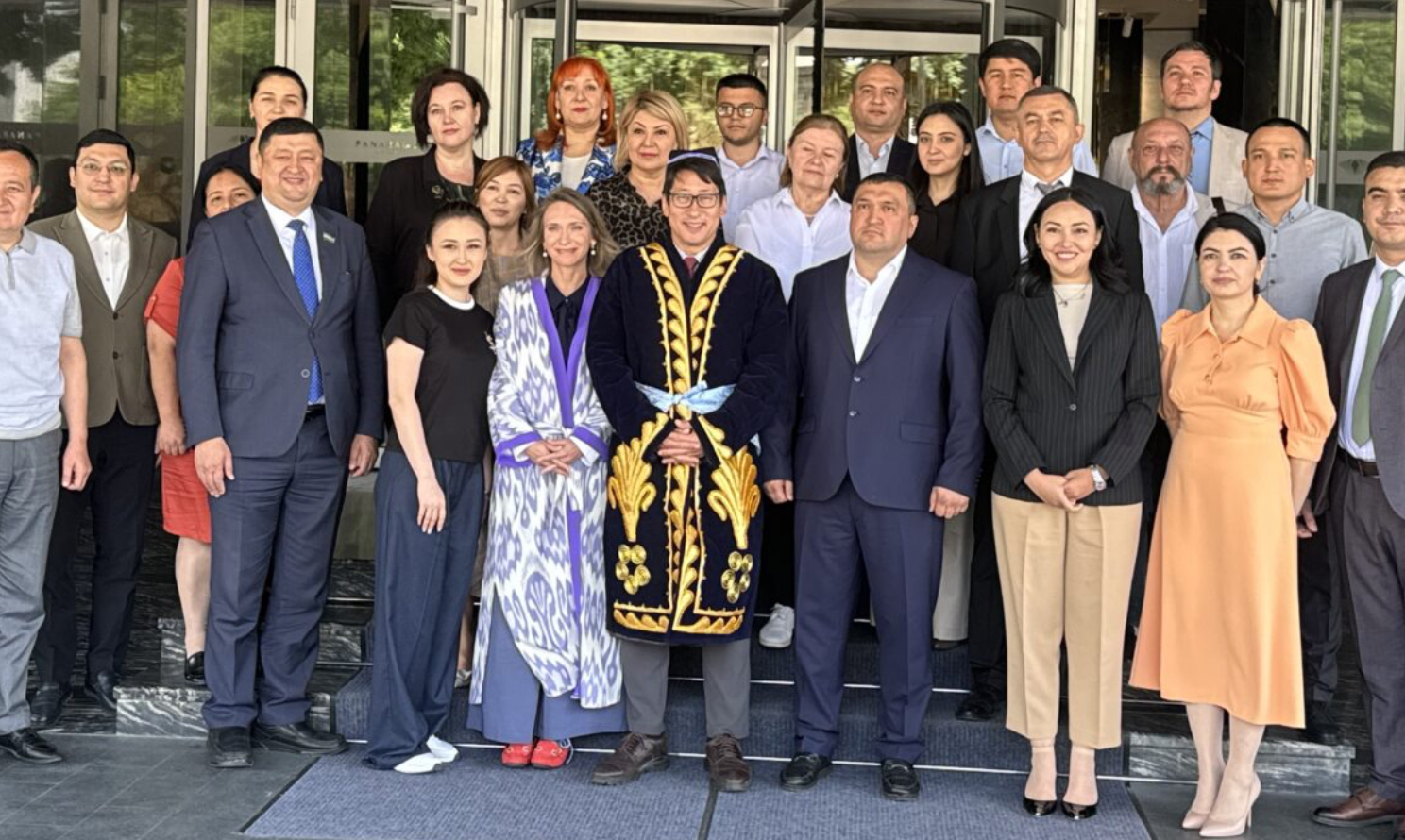Over 120 survivors of trafficking were repatriated to Uzbekistan and received essential rehabilitation services, while 135 individuals were empowered with support to initiate their own business ventures, the U.S. Embassy in Uzbekistan reported.
The Safe Migration in Central Asia (SMICA) project, supported by USAID and implemented by Winrock International, has concluded its activities in Uzbekistan with commendable achievements in the domains of safe migration and human trafficking prevention.

The regional initiative aimed to foster safe migration practices for combating human trafficking and promoted collaborative efforts with regional governments, non-governmental organizations (NGOs), and the private sector. These partnerships were instrumental in realizing the project's objectives.
David Hoffman, USAID Mission Director in Uzbekistan, expressed profound gratitude to all involved parties, including the Uzbek government, esteemed NGO partners, and dedicated individuals whose contributions played a crucial role in the project’s success. He emphasized the importance of continued collaborative efforts to ensure sustained impact on the well-being of individuals and communities in Uzbekistan.
Some of the key highlights of the project’s outcomes in Uzbekistan include regional collaboration, which fostered partnerships between Uzbekistan and Central Asian states. This collaboration resulted in the adoption of the Bukhara Declaration on Combating Trafficking in Persons, strengthening cross-border efforts to combat human trafficking.
Policy support was another significant achievement, with an expert assessment of Uzbekistan’s draft law on external labor migration providing recommendations for its enhancement to ensure the protection of migrants’ rights.

Community outreach played a crucial role in raising awareness and providing assistance. Comprehensive information campaigns educated over 2 mn individuals on safe migration practices, with thousands benefiting from legal, psychological, and reintegration assistance.
Training initiatives were implemented to equip migrants and survivors with essential skills. Pre-departure training was delivered to thousands of labor migrants, while survivors and migrants received valuable entrepreneurship and skills development training. Furthermore, hoteliers and hotline operators underwent specialized training on combating trafficking.
Innovative solutions such as info-kiosks at airports and Information and Consultation Centers in regions facilitated access to support services for migrants and survivors. These initiatives collectively contributed to the project's success in promoting safe migration practices and combating human trafficking in Uzbekistan.
The project’s success was made possible by the dedication and expertise of hotline operators, media professionals, and CTIP practitioners, all of whom received specialized training to enhance the project’s impact.
Illegal Border Crossings
Between October 2023 and May 2024, approximately 2,900 Uzbek nationals illegally crossed the U.S.-Mexico border near San Diego. During the same period, significant numbers of Chinese (30,000), Indian (8,900), and Turkish (7,800) citizens were also reported to have entered the region illicitly.
Central Asian illegal immigration saw a surge, with an estimated 50,000 individuals entering the U.S. in 2023 alone. Concerns have been raised regarding potential ties between certain migrants and extremist organizations.
According to the Migration Policy Institute's 2021 data, the immigrant population in the US stood at around 45.3 mn, representing a considerable portion of the nation's total population of approximately 331.9 mn. The U.S. formally admits around 1 mn migrants annually under its immigration policies.
Follow Daryo's official Instagram and Twitter pages to keep current on world news.
Comments (0)